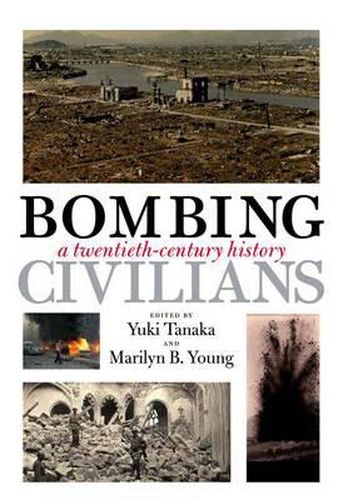Readings Newsletter
Become a Readings Member to make your shopping experience even easier.
Sign in or sign up for free!
You’re not far away from qualifying for FREE standard shipping within Australia
You’ve qualified for FREE standard shipping within Australia
The cart is loading…






From the British bombing of Iraq in the early 1920s to more recent conflicts in Kosovo, Afghanistan, Iraq, and Lebanon, indiscriminate aerial bombing has been a frighteningly common strategy of modern warfare, owing much to the relative safety of the attackers and the complete vulnerability of the victims.
In Bombing Civilians, leading experts Marilyn B. Young and Yuki Tanaka have brought together a group of distinguished scholars from Japan, the United States, and Europe to explore the history of indiscriminate bombing, examining the shift from bombing military targets to bombing civilians. This bold collection examines the fundamental questions of how this theory justifying mass killing originated and why it has been employed as a compelling military strategy for decades, both before and after the bombing of Hiroshima and Nagasaki.
With major new arguments, including Japanese historian Tsuyoshi Hasegawa’s claim that it was the Soviet invasion rather than the atomic bombs that compelled the Japanese to surrender in the Pacific War, Bombing Civilians combines historical and contemporary analysis to make a powerful argument about international law and the morality of war.
$9.00 standard shipping within Australia
FREE standard shipping within Australia for orders over $100.00
Express & International shipping calculated at checkout
From the British bombing of Iraq in the early 1920s to more recent conflicts in Kosovo, Afghanistan, Iraq, and Lebanon, indiscriminate aerial bombing has been a frighteningly common strategy of modern warfare, owing much to the relative safety of the attackers and the complete vulnerability of the victims.
In Bombing Civilians, leading experts Marilyn B. Young and Yuki Tanaka have brought together a group of distinguished scholars from Japan, the United States, and Europe to explore the history of indiscriminate bombing, examining the shift from bombing military targets to bombing civilians. This bold collection examines the fundamental questions of how this theory justifying mass killing originated and why it has been employed as a compelling military strategy for decades, both before and after the bombing of Hiroshima and Nagasaki.
With major new arguments, including Japanese historian Tsuyoshi Hasegawa’s claim that it was the Soviet invasion rather than the atomic bombs that compelled the Japanese to surrender in the Pacific War, Bombing Civilians combines historical and contemporary analysis to make a powerful argument about international law and the morality of war.